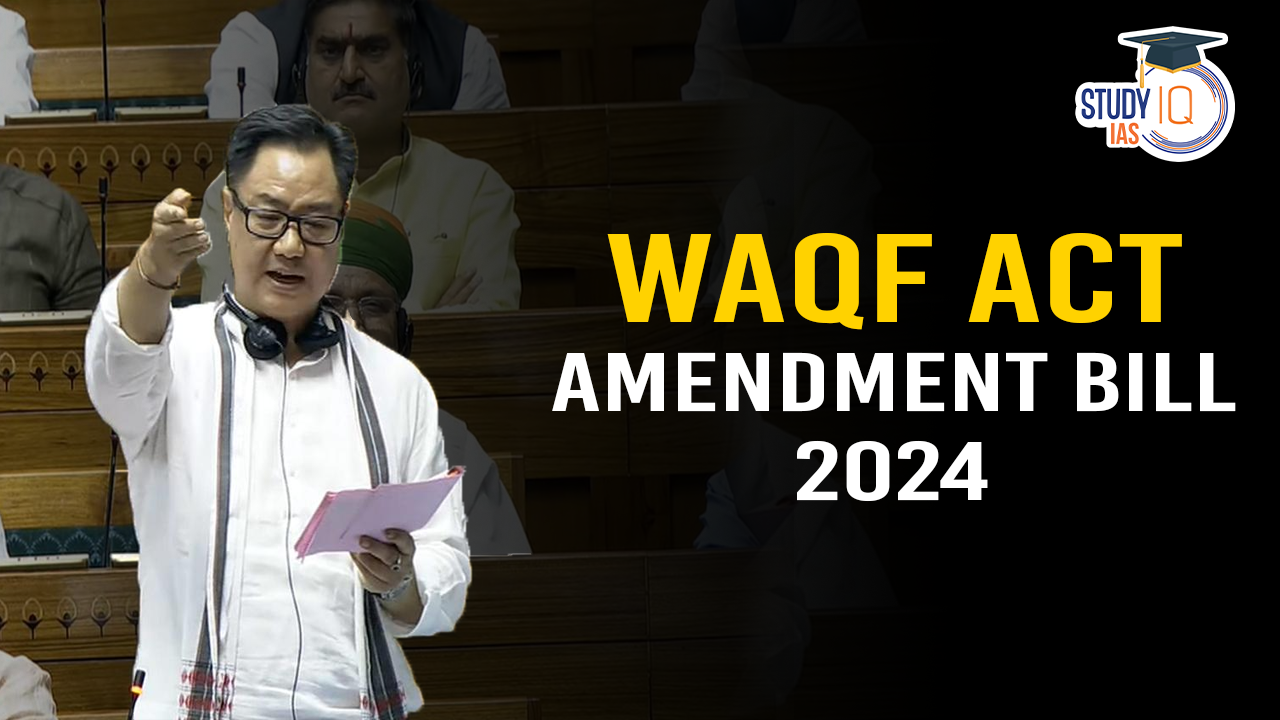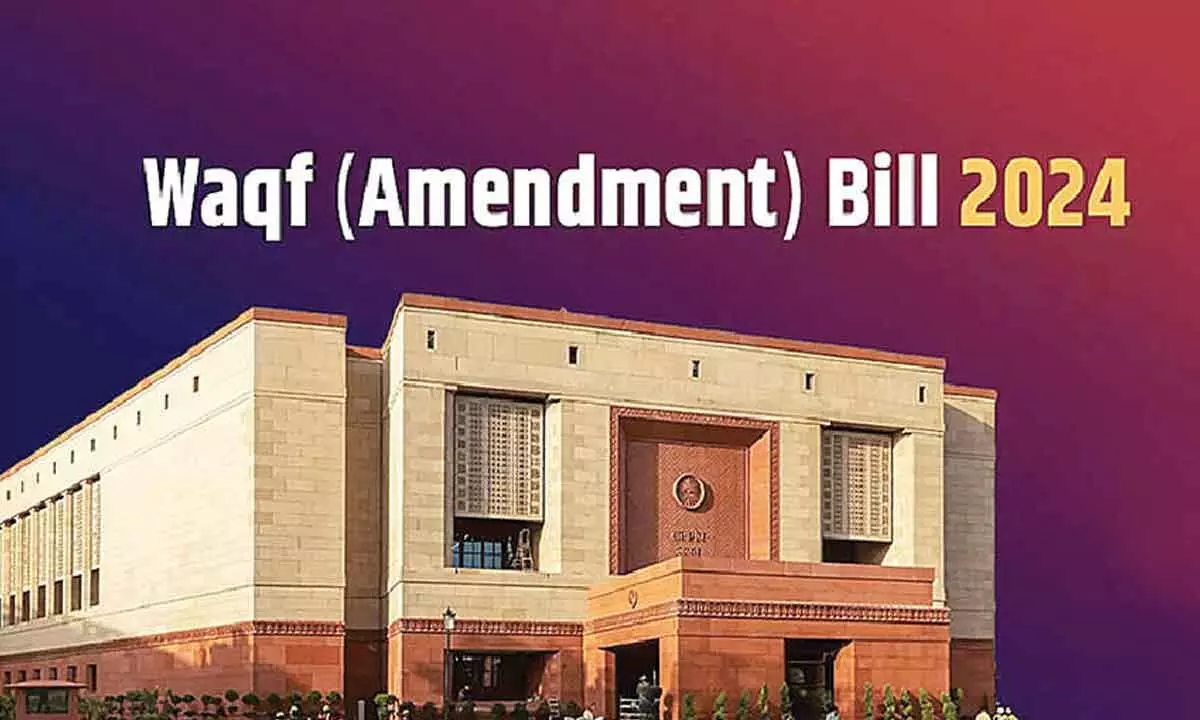Introduction To Waqf Amendment Bill
The Waqf Amendment Bill has become a topic of significant discussion in recent times. Waqf, an Arabic term meaning “endowment,” has its roots in Islamic tradition and involves dedicating property for charitable or religious purposes. Managed under a specific legal framework in many countries, waqf institutions serve communities through education, healthcare, religious activities, and other public welfare initiatives.
The Waqf system, a vital component of Islamic governance and social welfare, has existed for centuries. It embodies the concept of endowment, where individuals dedicate property or wealth for religious, educational, or charitable purposes. However, like many ancient institutions, waqf administration has faced numerous challenges, leading to calls for modernization and reform. The introduction of the Waqf Amendment Bill represents an important step in addressing these challenges, sparking significant public and legal discourse.
What is Waqf?
Waqf refers to a voluntary, permanent, and irrevocable dedication of a portion of one’s wealth or property to Allah for the benefit of society. This system has been pivotal in addressing socio-economic issues within Muslim communities for centuries. In practice, a waqf property generates income, with its benefits being utilized for charitable purposes like building mosques, schools, hospitals, or aiding the underprivileged.
In India, the Waqf Act, 1995, governs waqf properties, outlining the roles and responsibilities of waqf boards and the management of waqf assets. These boards function under state governments, ensuring that waqf properties are protected and used for the intended purposes.
Understanding the Waqf System
The term “waqf” originates from Arabic, meaning “detention” or “restriction.” It refers to the act of dedicating assets for perpetual religious or philanthropic use, ensuring that the benefits of the property serve the community over generations. The concept is rooted in Islamic teachings, with waqf properties often funding mosques, schools, hospitals, and orphanages.
In India, the waqf system has a long history, intertwined with the country’s diverse cultural and religious heritage. Waqf properties in India are governed by the Waqf Act, 1995, which established state-level Waqf Boards responsible for the administration and management of waqf assets.
Why the Need for an Amendment?
Over time, issues like mismanagement, illegal encroachments, and lack of transparency in the administration of waqf properties have emerged. Allegations of corruption and inefficiency within waqf boards have also raised concerns about the effectiveness of existing laws.
The Waqf Amendment Bill seeks to address these challenges by revising specific provisions in the original Act. It aims to enhance governance, ensure transparency, and safeguard waqf properties from exploitation.
Key Features of the Waqf Amendment Bill

- Definition of Waqf Property:
The amendment refines the definition of waqf property, ensuring clarity on what constitutes waqf assets. This move aims to prevent ambiguities that could lead to disputes or misuse. - Digital Record-Keeping:
Recognizing the importance of technology, the bill mandates digitizing waqf records. A centralized database for waqf properties would promote transparency, making it easier to track assets and their utilization. - Enhanced Penal Provisions:
To deter illegal activities, the bill introduces stricter penalties for encroachment, mismanagement, or unauthorized use of waqf properties. - Simplification of Dispute Resolution:
By proposing streamlined procedures for resolving disputes related to waqf properties, the amendment seeks to reduce delays in judicial processes. - Independent Audits:
The bill emphasizes the need for periodic audits of waqf boards by independent agencies. This measure aims to detect irregularities and ensure accountability. - Empowered Waqf Tribunals:
The amendment strengthens waqf tribunals, granting them greater authority to address grievances efficiently.
Challenges in Implementing Waqf Laws
While the proposed amendments reflect an effort to modernize Waqf Amendment Bill management, several challenges persist:
- Encroachments:
Encroachment on waqf lands is a widespread issue. Despite existing laws, reclaiming encroached properties remains a daunting task due to political and legal complexities. - Corruption and Mismanagement:
Instances of corruption within waqf boards undermine public trust. Lack of oversight often leads to inefficient use of waqf funds and resources. - Underutilization of Assets:
Many waqf properties remain underutilized or in a state of disrepair, failing to generate adequate revenue for charitable purposes. - Interference from State Governments:
Since waqf boards operate under state governments, political interference sometimes hampers their functioning.
Impact of the Waqf Amendment Bill
If implemented effectively, the Waqf Amendment Bill could have far-reaching impacts:
- Protection of Assets:
With enhanced legal safeguards, waqf properties are less likely to fall prey to encroachments or unauthorized usage. - Increased Transparency:
Digital record-keeping and independent audits would reduce opportunities for corruption, promoting trust among stakeholders. - Streamlined Administration:
Simplified dispute resolution mechanisms and empowered tribunals could improve the efficiency of waqf boards. - Economic Development:
Better management of waqf properties can unlock their economic potential, enabling them to fund more charitable activities and contribute to community development.
Debates Surrounding the Waqf Amendment Bill
Despite its potential benefits, the bill has sparked debates across political, social, and religious circles.
Supporters’ Perspective:
Proponents argue that the amendments are necessary to modernize waqf management and prevent misuse. They believe the bill will bring transparency, enhance accountability, and protect waqf properties from exploitation.
Critics’ Concerns:
Critics worry about potential government overreach in waqf matters, fearing that the amendments might erode the autonomy of waqf boards. There are also concerns about whether the proposed measures would be effectively implemented, given the systemic challenges faced by waqf institutions.
The Way Forward
To ensure the success of the Waqf Amendment Bill, the following steps could be considered:
- Stakeholder Engagement:
Policymakers should involve waqf board members, legal experts, and community leaders in discussions to address concerns and build consensus. - Capacity Building:
Training programs for waqf board officials can equip them with the skills needed for efficient management. - Public Awareness Campaigns:
Educating the public about the importance of waqf and their role in safeguarding waqf properties can foster community involvement. - Robust Monitoring Mechanisms:
Establishing an independent monitoring body could ensure that waqf boards adhere to the amended provisions. - Judicial Reforms:
Strengthening the judiciary’s capacity to handle waqf-related disputes would expedite resolution processes.
Conclusion
The Waqf Amendment Bill represents a significant step toward reforming the management of waqf properties. By addressing long-standing issues like corruption, encroachment, and inefficiency, the bill has the potential to revitalize waqf institutions and enhance their role in community welfare.
However, its success will depend on effective implementation, stakeholder collaboration, and sustained efforts to overcome existing challenges. As the debate around the bill continues, it is crucial to strike a balance between modern governance practices and the preservation of waqf’s traditional essence.
As India navigates this crucial reform, the Waqf Amendment Bill serves as a reminder of the need to balance tradition with progress, preserving the spirit of waqf while adapting it to the demands of a modern, inclusive society.
You Many Also Read: Neera Arya
